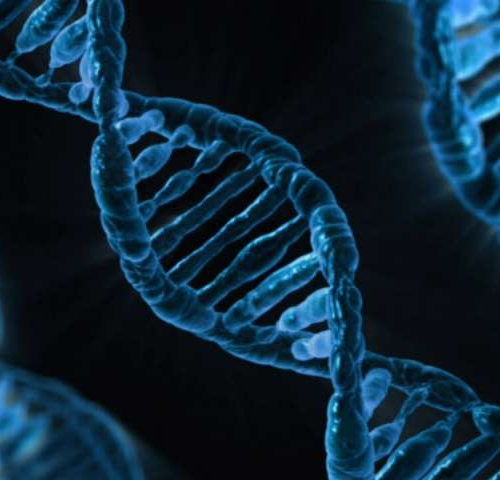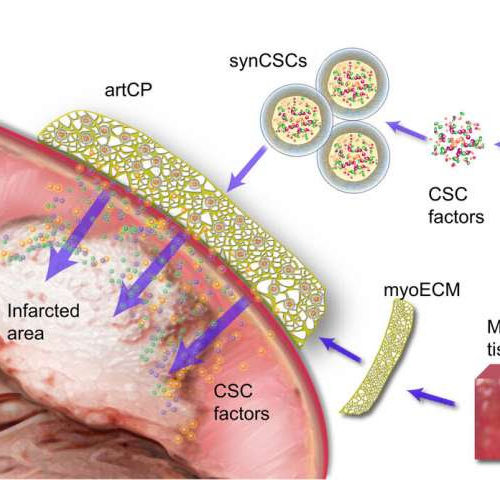Most adults with systemic lupus erythematosus (SLE) are not at increased risk of hospitalization from COVID-19 due to medications used to dampen their altered immune system, the cause of their disease. Nor are most people with more common types of arthritis, such as rheumatoid, psoriatic and spondyloarthritis, at greater risk of hospitalization from COVID-19, a...
Tag: <span>Lupus</span>
Spatial mapping method pinpoints potential new therapeutic targets in lupus
by Children’s Hospital of Philadelphia A team of researchers from Children’s Hospital of Philadelphia (CHOP) used a new method of pinpointing potential disease-causing changes in the genome to identify two new potential therapeutic targets for lupus, while also paving the way for more accurately identifying disease-causing variations in other autoimmune disorders. The findings were published...
Drug shows promise in reversing kidney damage caused by lupus
by Yale University A drug used for cancer therapy has shown promise in reversing kidney damage caused by systemic lupus erythematosus (SLE, or lupus), according to a Yale-led study published April 8 in the journal Science Translational Medicine. “Kidney damage affects about half of the patients with lupus, sometimes leading to renal failure with a...
Peripheral nervous system events not common in lupus
(HealthDay)—Peripheral nervous system (PNS) disease is a component of systemic lupus erythematosus (SLE) disease activity and has a significant negative impact on health-related quality of life, according to a study published in the January issue of Arthritis & Rheumatology. John G. Hanly, M.D., from the Queen Elizabeth II Health Sciences Center and Dalhousie University in...
Flipping the script on novel cancer therapy leads to insights into lupus
YALE UNIVERSITY In the last decade, scientists discovered that blocking a key regulator of the immune system helped unleash the body’s natural defenses against several forms of cancer, opening up a new era of cancer immunotherapy. Now Yale scientists have essentially flipped this script and found that when impaired a molecularly similar regulator can cause...
More than half of males with lupus report feeling depressed, receive little support
by Hospital for Special Surgery A national survey of male patients with lupus finds the illness has a significant impact on their physical and emotional health, yet they often do not receive support that could help them cope. Researchers at Hospital for Special Surgery (HSS) in New York City launched the nationwide survey to assess the needs of male patients...
Hydroxychloroquine blood levels predict retinopathy risk in lupus
(HealthDay)—Hydroxychloroquine (HCQ) blood levels are useful in predicting retinopathy among patients with systemic lupus erythematosus (SLE), according to a study published online Sept. 18 in Arthritis & Rheumatology. Michelle Petri, M.D., from the Johns Hopkins University School of Medicine in Baltimore, and colleagues assessed the risk for HCQ retinopathy by clinical characteristics and levels of...
What causes numbness in the thigh?
By Rachel Nall, MSN, CRNA Reviewed by Nancy Hammond, MD Many factors can cause numbness in the thigh. These include keeping the legs crossed for too long, wearing tight clothing, multiple sclerosis (MS), and lupus. Treatment options depend on what is causing the numbness. From conditions affecting blood flow to damage to the nerves themselves,...
B cells off the rails early in lupus
by Quinn Eastman, Emory University New research on the autoimmune disease systemic lupus erythematosus (SLE) provides hints to the origins of the puzzling disorder. The results were published Monday in Nature Immunology. In people with SLE, their B cells—part of the immune system—are abnormally activated. That makes them produce antibodies that react against their own tissues, causing a variety of symptoms,...
Scientific discovery may lead to a treatment for lupus
By Dr. Liji Thomas, MD When there is an excessive number or hyperactivation of immune cells, very high levels of proteins known as cytokines are released, resulting in a cytokine storm that causes severe and often irreversible tissue damage. This accounts for the crippling nature of many autoimmune disorders such as lupus. Now, an international team of...


